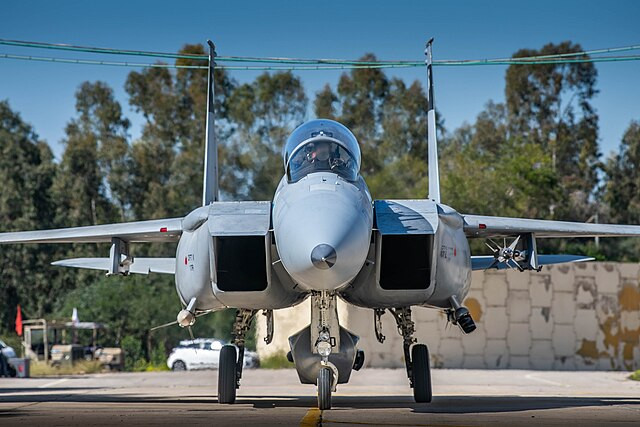Israeli airstrikes across Lebanon claimed at least 21 lives, including a municipal official and civilians, Lebanese authorities reported Wednesday. The strikes hit various areas in the south, most notably the town of Qana, where 15 people perished. Qana, already a place of tragic historical significance, saw further destruction as several buildings were flattened or severely damaged. Rescue teams combed through the rubble, pulling out victims and searching for any remaining survivors amidst the devastation.
In Nabatiyeh, another major strike targeted a meeting of the municipal council, killing six people, including the city's mayor, Ahmad Kahil. Lebanese officials accused Israel of "intentionally targeting" the gathering, which had convened to discuss relief efforts for the beleaguered region. Lebanese caretaker Prime Minister Najib Mikati condemned the attack, questioning the prospects for peace given the continued violence. "What solution can be hoped for in light of this reality?" he remarked in a statement.
The Israeli military stated that its airstrikes focused on Hezbollah command centers and weapon storage facilities embedded within civilian areas, though no evidence was provided. Israel also resumed attacks on Beirut's southern suburbs after a six-day pause, claiming to have targeted an arms warehouse located beneath an apartment building. In a warning issued on social media, Israel urged civilians to evacuate the area before the strike. As a result, no casualties were reported from the Beirut strikes.
Lebanon's Prime Minister Mikati had previously received assurances from the United States that Israel would restrain its strikes on Beirut. However, Israeli fighter jets returned to the area, hitting the Hezbollah stronghold in the southern suburbs, known as Dahiyeh, which also houses a large civilian population. Lebanese officials criticized the international community's silence on these attacks, particularly the targeting of civilian infrastructure.
The conflict, which intensified in October, stems from Hezbollah's decision to fire rockets into Israel in support of Hamas following an attack by the Palestinian militant group. Since then, Israel has launched a wide-scale military offensive in southern Lebanon, resulting in the deaths of Hezbollah leader Hassan Nasrallah and several top commanders. Israeli airstrikes have killed over 2,300 people in Lebanon in the past year, according to the Lebanese Health Ministry, with more than three-quarters of the fatalities occurring in the last month. The fighting has displaced around 1.2 million people in Lebanon, adding to the humanitarian crisis.
The U.N. Special Coordinator for Lebanon, Jeanine Hennis-Plasschaert, expressed alarm over the escalating violence, particularly in light of the deaths of civilian leaders like Mayor Kahil. "This attack follows other incidents in which civilians and civilian infrastructure have been targeted across Lebanon," she noted, urging all parties to consider the consequences of their actions on the civilian population.
In Gaza, the conflict rages on more than a year after the initial Hamas attack, which left over 1,200 Israeli civilians dead and 250 others abducted. Israeli military operations, primarily centered around Jabaliya refugee camp, have claimed thousands of lives. Hospitals in Gaza reported receiving 350 bodies since the offensive began on October 6, with many of the deceased being women and children. Rescue teams struggle to retrieve bodies due to ongoing airstrikes, according to Gaza's Health Ministry Director-General Dr. Mounir al-Boursh.
The Israeli offensive has had a devastating impact on Gaza's population, with over 42,000 deaths recorded and 90% of the territory's 2.3 million residents displaced. Entire neighborhoods lie in ruins, and many families are forced into crowded shelters and makeshift camps as humanitarian conditions worsen. Dr. al-Boursh described the dire situation, stating, "Entire families have disappeared."
Efforts to negotiate a ceasefire in both Gaza and Lebanon have stalled despite international mediation attempts led by the United States, Egypt, and Qatar. Hezbollah has declared it will continue its attacks until a ceasefire is established in Gaza, a demand that seems increasingly unlikely given the collapse of negotiations.
Meanwhile, Israel's Defense Forces reported striking numerous Hezbollah targets in Nabatiyeh and surrounding areas, claiming to have dismantled underground networks used by the militant group. The Israeli navy also coordinated with ground troops to target positions in southern Lebanon. The Israeli military justified the attacks, stating they are aimed at neutralizing Hezbollah's capabilities and ensuring the security of Israeli citizens.
Western countries, including the United States, have expressed concern over the escalating violence. U.S. State Department spokesperson Matthew Miller stated that Washington has raised its concerns with Israeli Prime Minister Benjamin Netanyahu. Despite these concerns, the Biden administration has reiterated its support for Israel, even dispatching advanced anti-missile systems and additional troops to the region to bolster its defenses.
Calls for a ceasefire have so far been rejected by Israel's far-right government. Prime Minister Netanyahu has vowed to continue military operations until the threats from Hamas and Hezbollah are neutralized. Lebanon's caretaker government, faced with the growing toll of civilian casualties, has expressed doubts about the effectiveness of diplomatic efforts to end the hostilities. Prime Minister Mikati emphasized the challenges of deterring Israel's military actions, particularly given the high stakes and entrenched hostilities.




